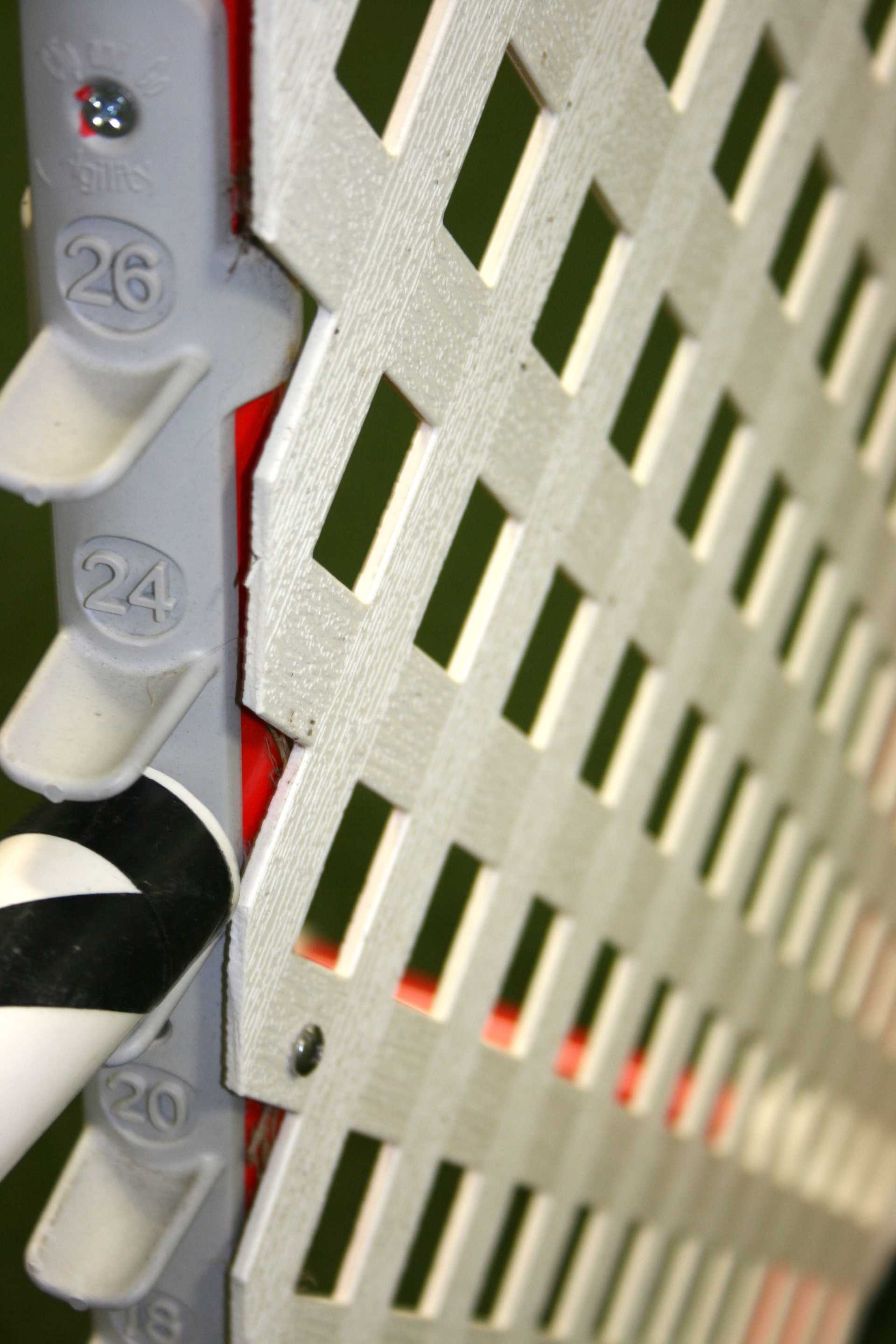Contact Equipment Safety in Photos
20 Mar 2017
Updated: 2017-Apr-4I’m always concerned about our dog’s safety on course and I’m collecting photos of dog agility contact equipment and highlighting unsafe situations of which folks might be unaware. If you have photos to help us be safer please share them with me and I’ll update this article and credit you for your contribution!
Sharp Hinge Pin Retaining Clips
A rotated hinge pin can put it’s cotter pin/retaining clip in a position where a dog could snag their foot on it as they cross the obstacle.
Rotated Dog Walk Cotter Pin
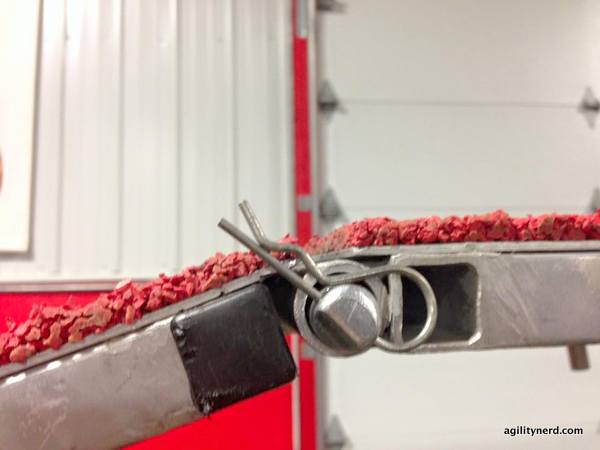
Depending on the diameter of the hinge rod hole you might be able to find “O-Ring” style cotter pins/retaining clips that fit. FWIW I’ve never seen a hinge rod come out with the weight of a Dog Walk plank on it so it is likely these pins aren’t necessary.
Protruding Bolts on Dog Walk Supports
Some dog walks have adjustable posts/props that are placed under the planks to reduce their flex when dogs run over them. Be aware of any protruding wing nuts that might be at a dog’s eye level:
Dog Walk Support Post Bolts
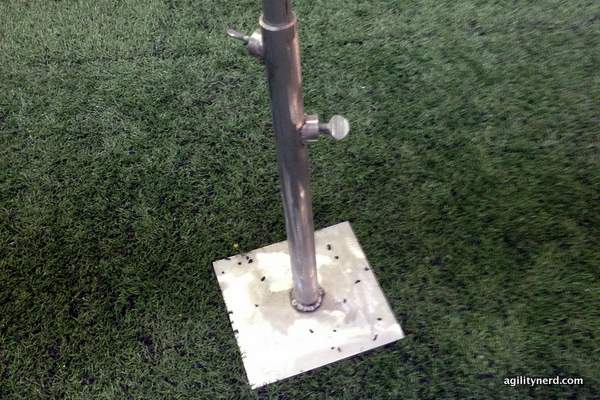
Pool noodles to the rescue, thanks for the tip Lynne V!
Pool Noodle Covering Dog Walk Support Post Bolts
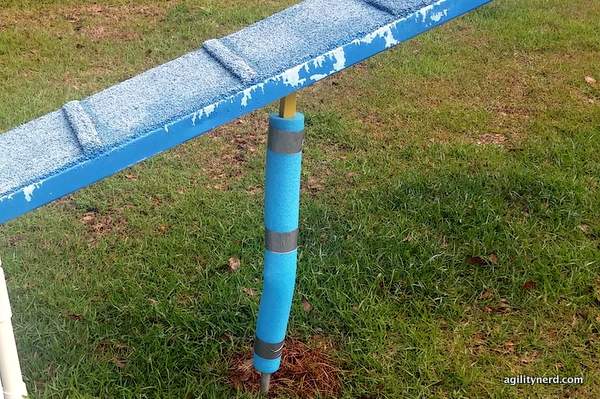
Gaps Between Dog Walk Planks
Some dog walks have a substantial gap at the joint between each plank in which dog’s can get a foot, toe, or nail caught:
Dog Walk Plank Gap
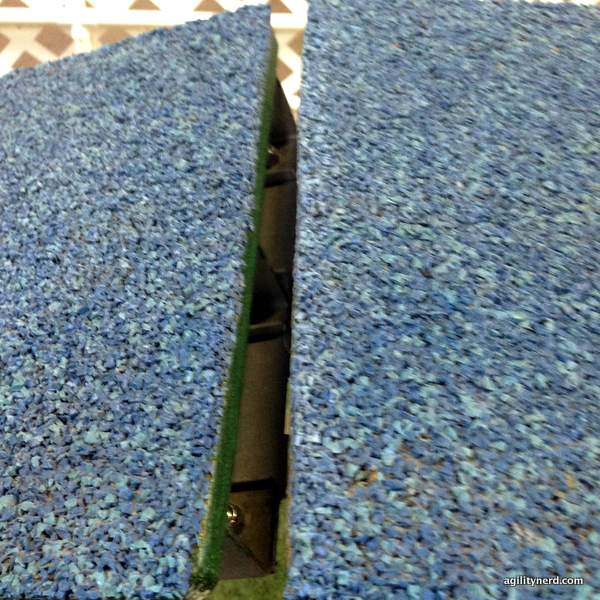
Once again a sharp knife and some pool noodles offer a solution:
Pool Noodle Covering Dog Walk Gap
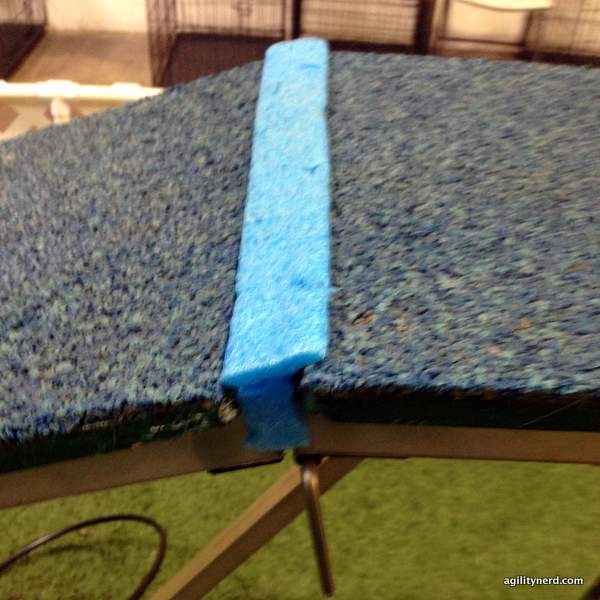
Protruding Pins/Brackets on Lowered Dog Walks
The legs on my Dog Walk rotate on a hinge to let me set it at about two feet off the ground for training purposes. There is a metal pin and retaining clip that hangs down and could be very dangerous for dogs running under the dog walk.
Dog Walk Retaining Post/Clip
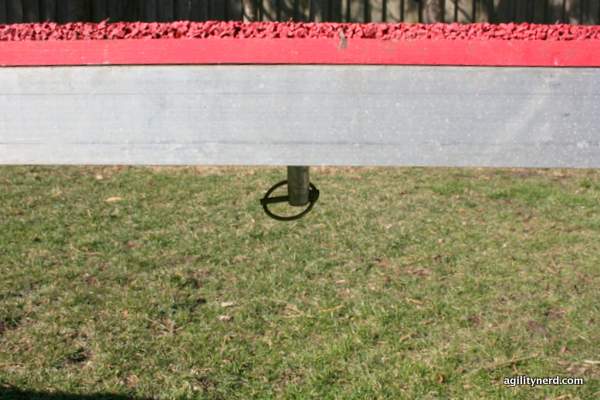
Flyer Safe Under the Dog Walk
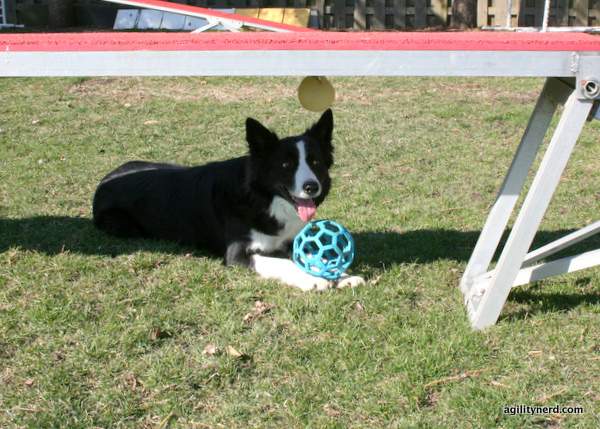
I’ve made this situation safer by jamming a rubber ball over the pin/clip whenever I leave this Dog Walk lowered. Sometimes, Flyer wants to pull it off to play!
Extra Long/Looping A-Frame Chains
If you have extra long chains on your A-Frame make certain they aren’t left in a large loop in which a dog could get their head/neck caught.
Petey Unhappy About a Low Hanging Chain Loop
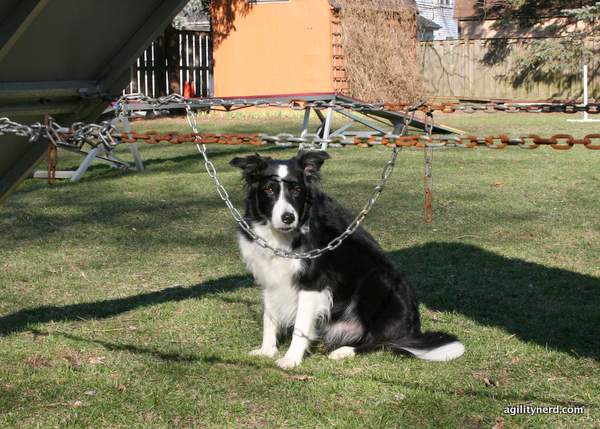
A couple solutions:
- Wrap the excess chain tightly along the taut part of the chain.
- Cut the chains to the longest competition length (lowest A Frame height). Then only attach the extra chain (via a heavy duty carabiner) when you need an extra low A-Frame for training dogs.
Unattended Teeters
If your dogs have access to your equipment without your supervision please put your teeter away or at least flip it upside down, especially if you have multiple dogs. All sorts of injuries can occur when one of more dogs get on the teeter at the same time, are under the raised end when another dog tips it, or when left low and a dog runs into the raised end, etc.
Upside Down Teeter
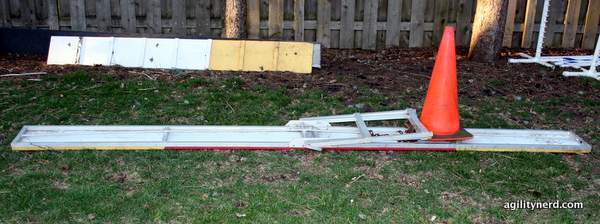
In the photo above, imagine the teeter is in the center of the field and it is difficult to put away. Here I’ve flipped it over and placed a cone to cover the protruding feet of the adjustable teeter base. If my teeter was setup this close to my fence I’d normally put it on edge next to the other contact planks where it would be out of the way of my dog’s play area.
Teeter Hinge Handle
A lot of teeters have a “handle” on the end of their hinge. If it is accidentally rotated upward, a dog could slides off the side of teeter board and hits it they could get scratched/cut, or worse.
Teeter Hinge Handle Rotated Upward
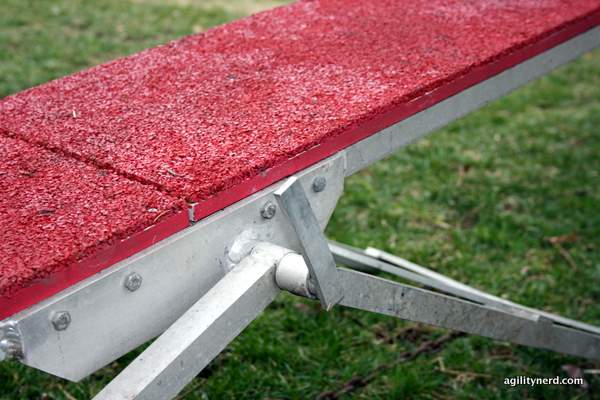
Make sure the handle is rotated downward where dog’s can’t contact it.
Again, please let me know if you have any photos to share!
If you enjoyed this article won't you please:  Thanks!
Thanks!
